Since the full-scale invasion began, Anastasia Klimash has been talking to chemists in Ukraine to find out how they are being affected by the war. Here she shares her story, along with excerpts from nine of these conversations
‘I just read they bombed Kyiv. This is the worst! I’m so sorry.’ A message from my labmate was the first I saw about the full-scale Russian invasion. I called my parents in Dnipro. Several strategic objects in the city had been hit, but they are adamant about staying. ‘We stocked up on water and aren’t going anywhere. Don’t worry about us.’ They don’t want to flee again.
Back in 2014, when I was studying in France, they got stuck in Donbas taking care of my grandma. On the phone with my mom in the evenings she would tell me about armed people, clearly not locals, marching on our street, military vehicles entering the town, someone organising fake referendums. Sometimes over the phone, I could hear the shelling. They managed to escape to Dnipro with my grandma. None of us have since been able to return to Donbas. Apart from the logistics, it’s just not safe there if you have an openly pro-Ukrainian position.
Still, we are luckier than many in Ukraine. Dnipro is a relatively safe city, thanks to its geographic position and the efforts of the Ukrainian army. And I am abroad with a job and a lab. Many Ukrainian scientists have had their research disrupted and put on hold indefinitely. Many have also joined the Ukrainian army or volunteer. And some, such as inorganic chemist Oleksandr Korsun, a lecturer at Kharkiv National University, have been killed in Russian shelling.
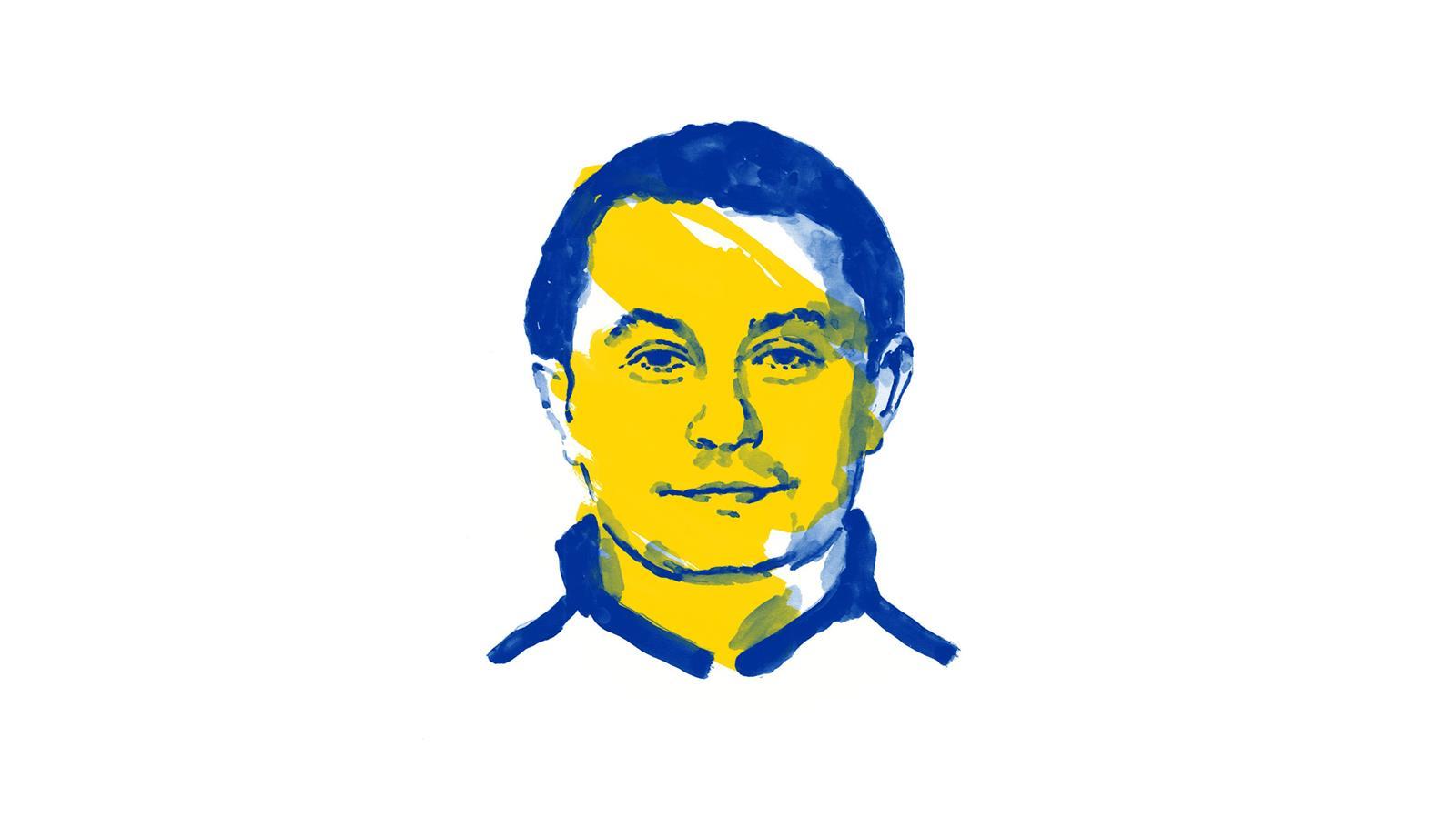


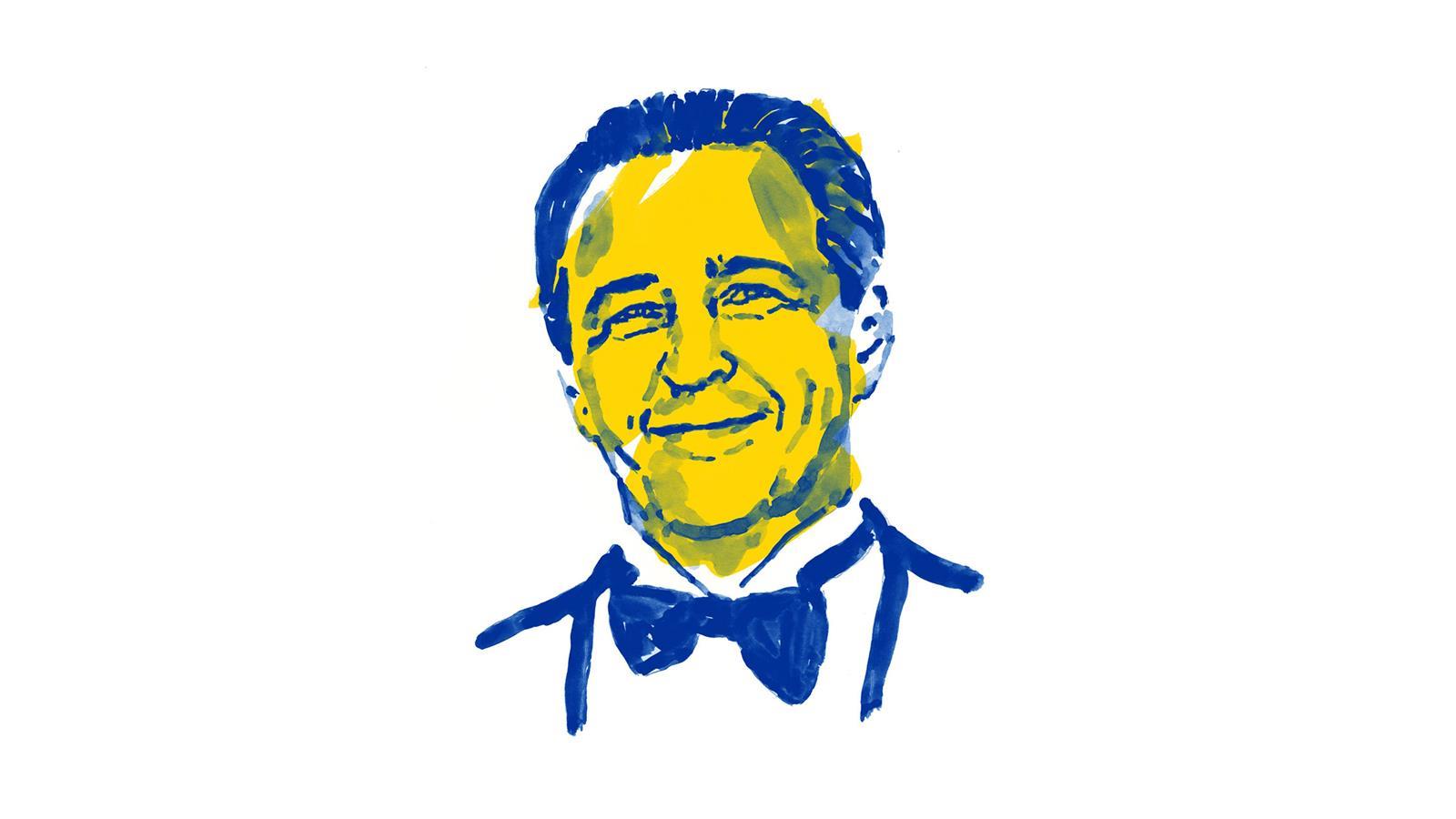



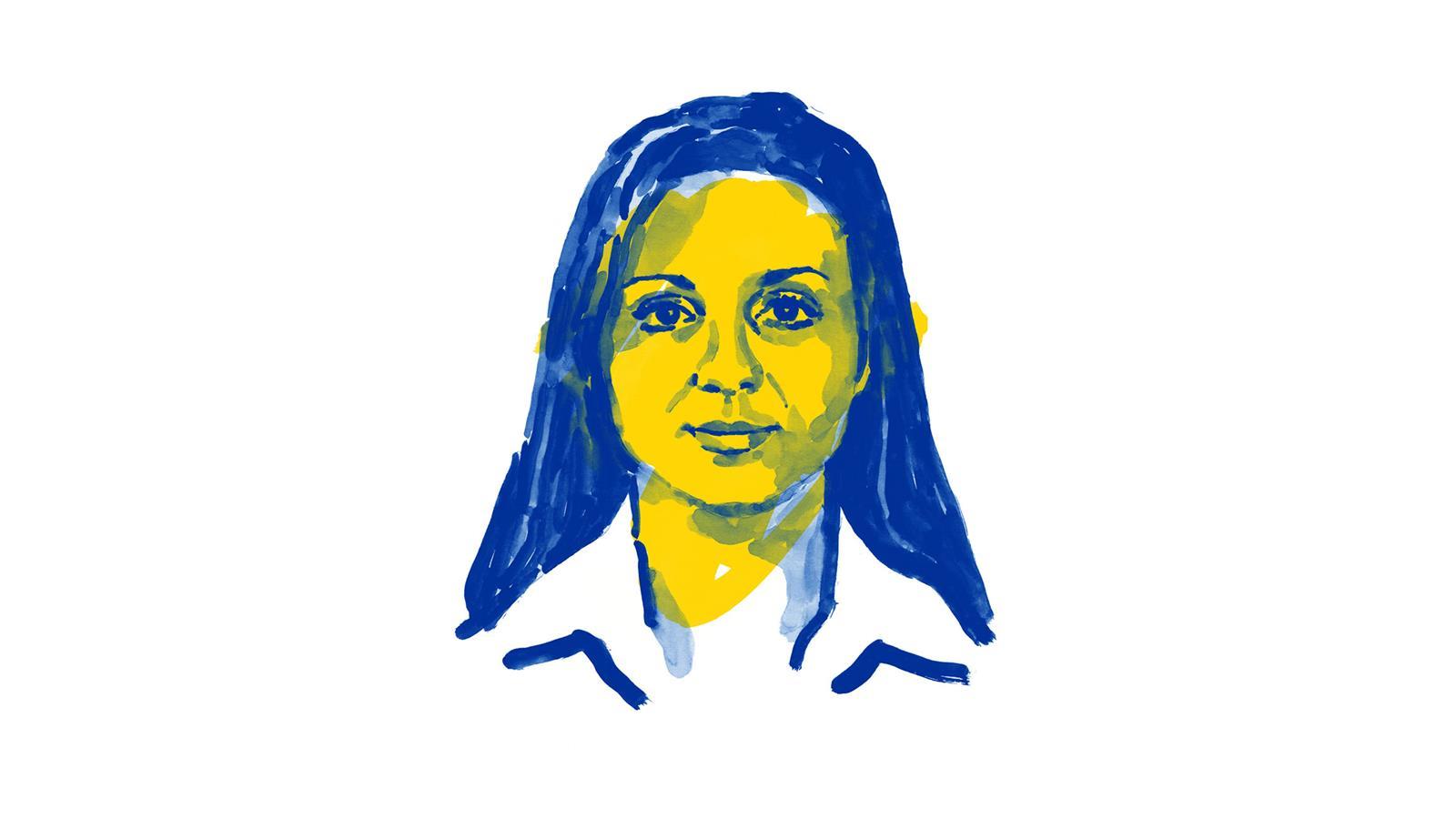



Oleksandr Bieda is head of the R&D department at the scientific service consulting Otava, and lives in Kyiv
‘We shovelled sand and bagged it to build barricades. We made Molotov cocktails. That’s where my knowledge of chemistry was useful.’
‘Right now, absolutely everyone is working towards achieving the same goal – Ukraine’s victory. But psychological help will be needed later for sure, because there will be a lot of PTSD.’
Grygoriy Dmytriv is the dean of the faculty of chemistry at the Ivan Franko National University of Lviv
‘We position ourselves as an outpost of help. We’ve had a few missile strikes, but you cannot compare it to what people in other cities are going through.’
‘I admire our students, not only as scientists but also as citizens who take an active part in the country’s life. If they cannot be present at a lecture, then I’m on their side.’
‘I say to the lecturer, “you should thank that student for not coming to your lecture and doing something useful for our victory.”’
Senior research fellow Liudmyla Solianyk lived in Bucha district
‘We saw missiles launched, including in the direction of our house. The kids were really scared, and we tried to hide in the well.’
‘We saw the lines of civilian cars burned down; we saw the bodies of civilians who tried to leave.’
‘This is not the brink of a humanitarian crisis. This is the crisis itself.’
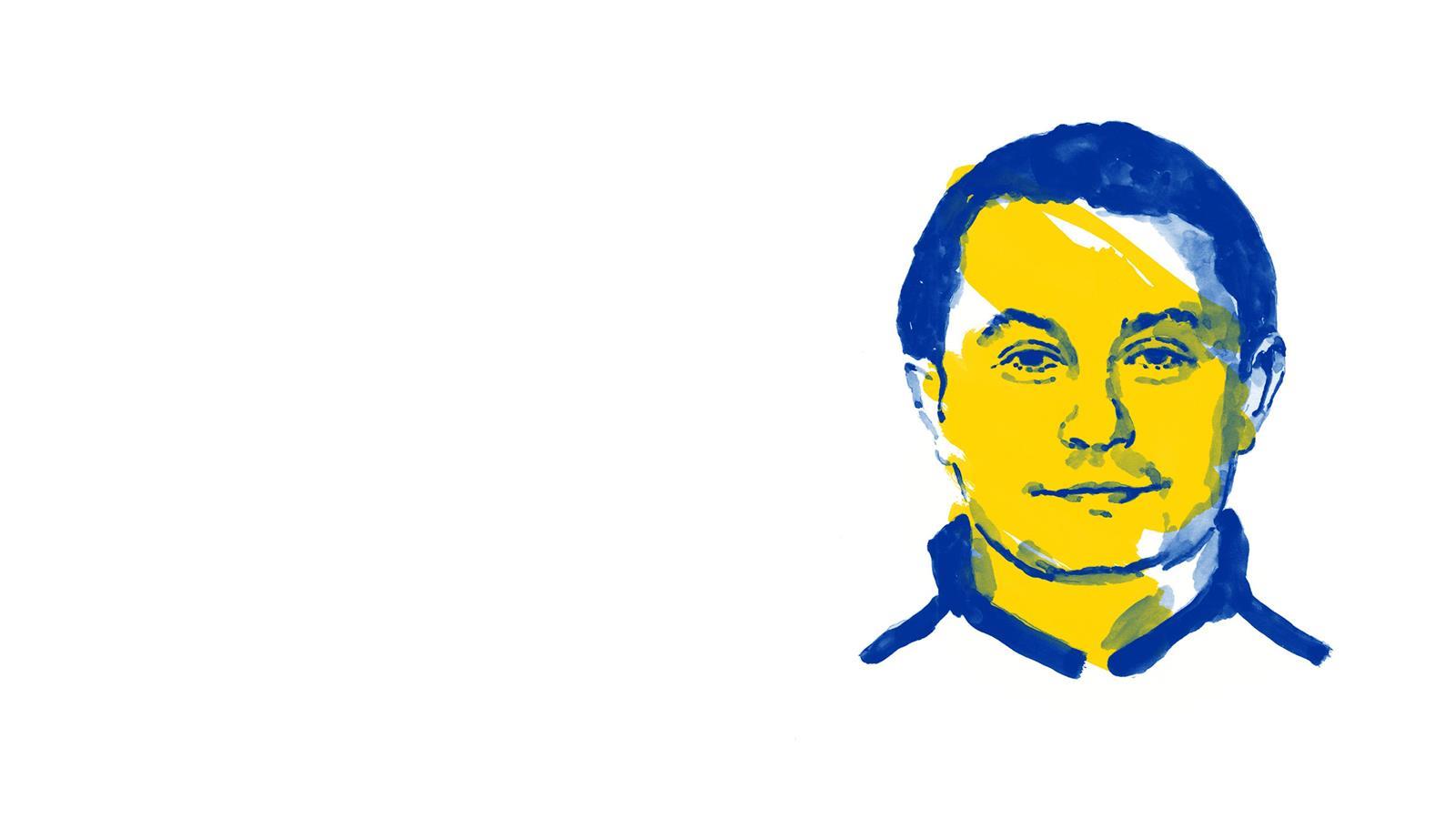


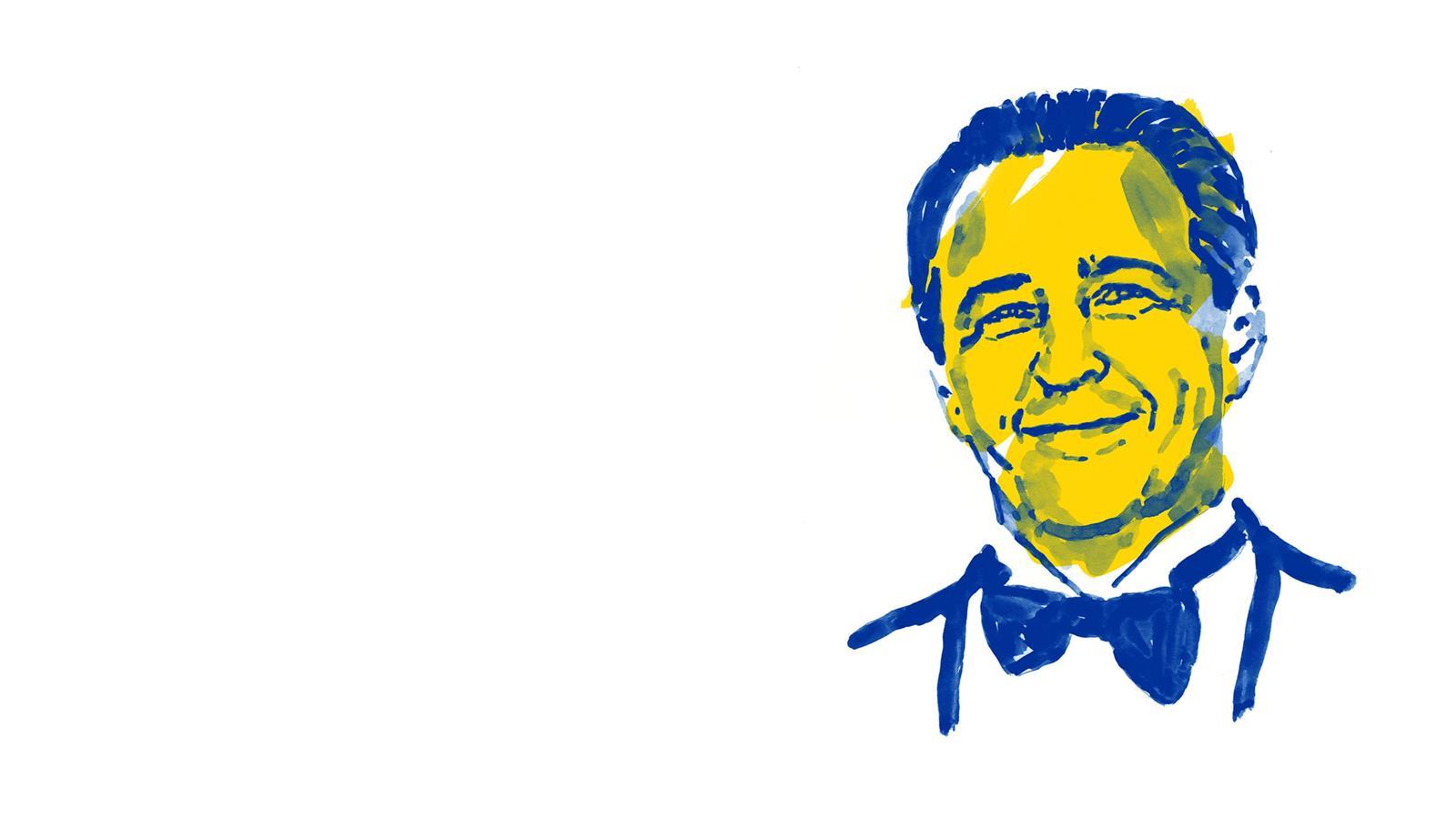



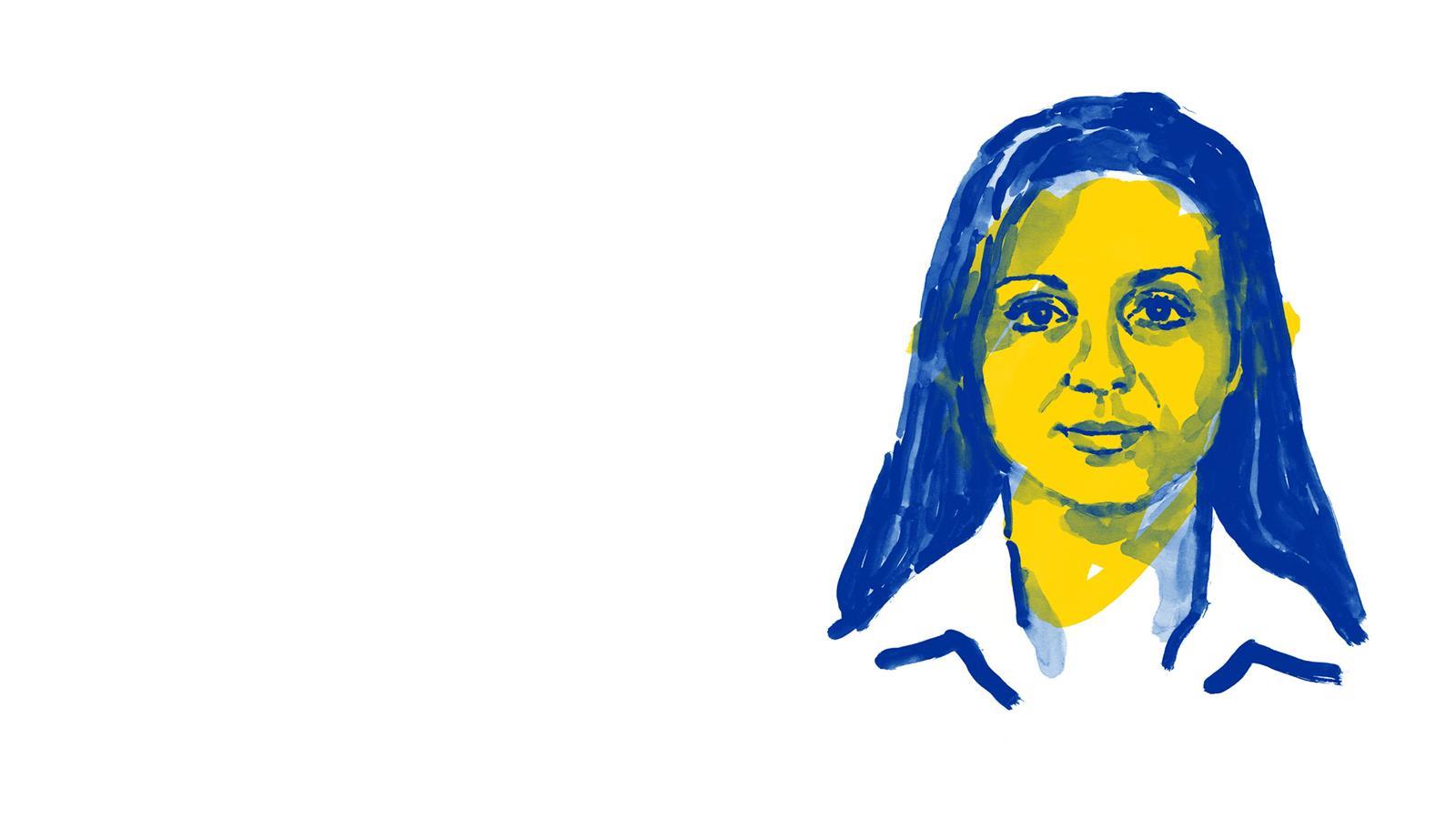



Oleksandr Bieda is head of the R&D department at the scientific service consulting Otava, and lives in Kyiv
‘We shovelled sand and bagged it to build barricades. We made Molotov cocktails. That’s where my knowledge of chemistry was useful.’
‘Right now, absolutely everyone is working towards achieving the same goal – Ukraine’s victory. But psychological help will be needed later for sure, because there will be a lot of PTSD.’
Grygoriy Dmytriv is the dean of the faculty of chemistry at the Ivan Franko National University of Lviv
‘We position ourselves as an outpost of help. We’ve had a few missile strikes, but you cannot compare it to what people in other cities are going through.’
‘I admire our students, not only as scientists but also as citizens who take an active part in the country’s life. If they cannot be present at a lecture, then I’m on their side.’
‘I say to the lecturer, “you should thank that student for not coming to your lecture and doing something useful for our victory.”’
Senior research fellow Liudmyla Solianyk lived in Bucha district
‘We saw missiles launched, including in the direction of our house. The kids were really scared, and we tried to hide in the well.’
‘We saw the lines of civilian cars burned down; we saw the bodies of civilians who tried to leave.’
‘This is not the brink of a humanitarian crisis. This is the crisis itself.’
This war affects the lives of Ukrainians everywhere. I’m not in the country, and I’m still entirely consumed by what is happening there. These days I often need an extra effort to focus on my research. My supervisor Pete Skabara is supportive and he is also very involved, helping to set up the humanitarian aid point at the University of Glasgow and getting in touch with the Royal Society of Chemistry regarding ways to support chemists in Ukraine. And I assist by collecting information on Ukrainian scientists’ needs. I also work as a translator for the volunteer news organisation WithUkraine, and constantly look for ways to make the voices of Ukrainians, including chemists, heard internationally.
In my quest to interview Ukrainian chemists, I tried to reach out to Anton Senenko, a researcher at the NASU Institute of Physics in Kyiv. Since the end of February, he’s been helping with the evacuations in the most hellish regions of Ukraine’s north. He saw Bucha and Irpin after Russian troops left. His Facebook feed is full of photos of burnt windowless buildings and civilian cars. I have not heard from him yet. I don’t think he’s doing much science these days.
Almost all the Ukrainian chemists I have spoken to say the same thing. They need academic support in various forms, and appreciate all of it, but the most critical thing Ukrainian chemists need right now is our country’s victory. Without it, no proper work can happen. The only chance for Ukrainian chemists to reach their full potential – wherever they currently are – is to know that their country is safe.
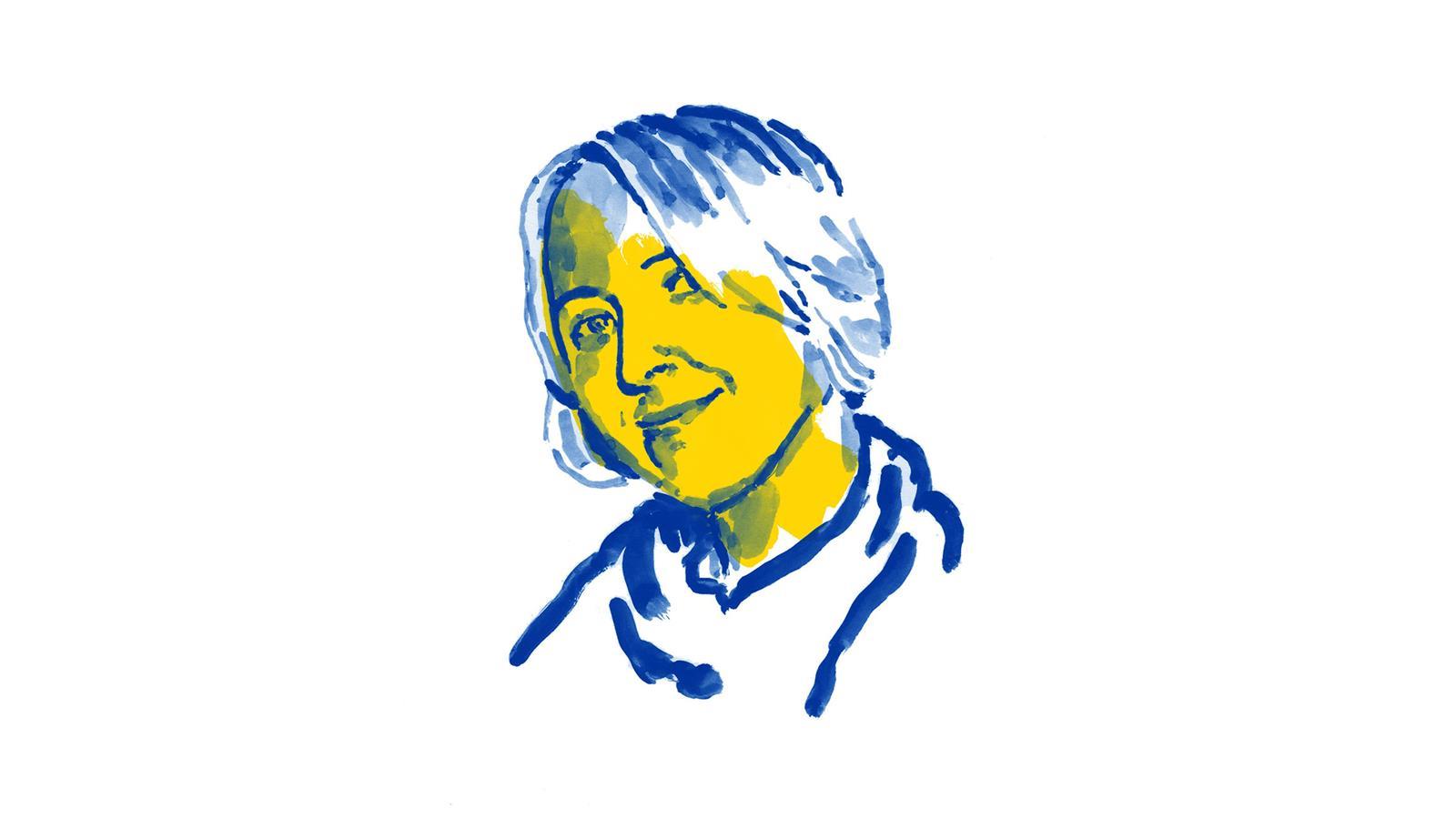


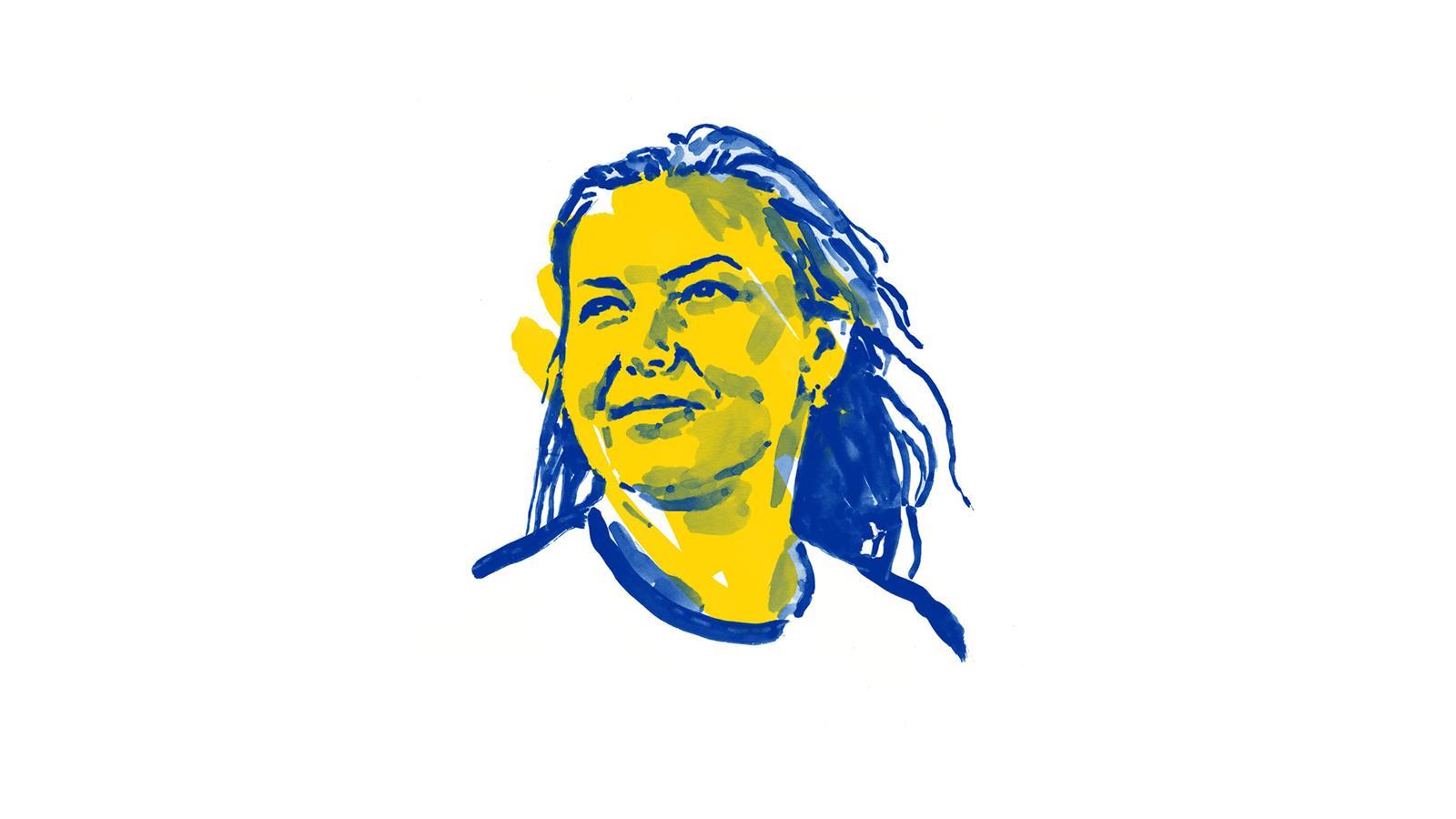


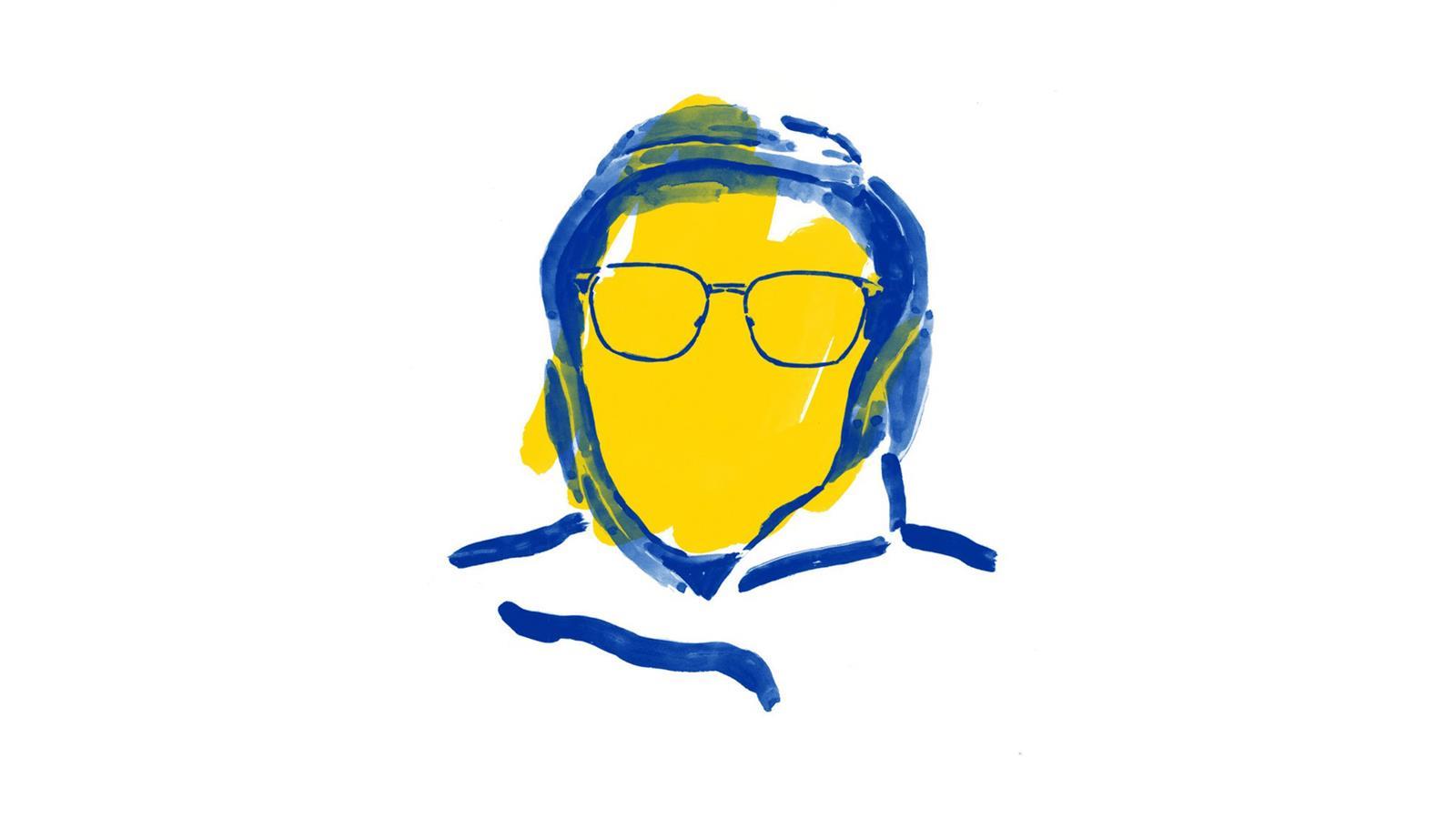



Olha Konshyna is currently on maternity leave from her job as a chemical technologist, and is based in Kyiv
‘I had a dream job, a dream house, I achieved what I wanted in life and then boom! Everything so suddenly goes wrong.’
‘I don’t know how one can help Ukraine other than by sending weapons right now. It’s hard to see how it is possible to work while the war continues. But we will be trying.’
Viktoriia Moskvina is a senior research fellow at Taras Schevchenko Kyiv National University
‘Every day starts with a roll call of colleagues, students, PhD students. Some students write, “please, talk to us; we are too worried about our relatives.”
‘Unfortunately way too many Russians, even when not publicly supporting the war, think we can continue business as usual, as if their military weren’t destroying Ukrainian cities.’
A chemistry research fellow (name withheld) has joined a territorial defence unit
‘For the first two weeks, I was busy carrying sandbags to form fortifications. Gradually it turned into something more like a military unit; now we have contracts, we are part of the staff.’
‘We need military support: weapons, ammunition, even uniforms.’
‘For chemists, for scientists in general, the best help would be Ukraine’s victory in this war.’
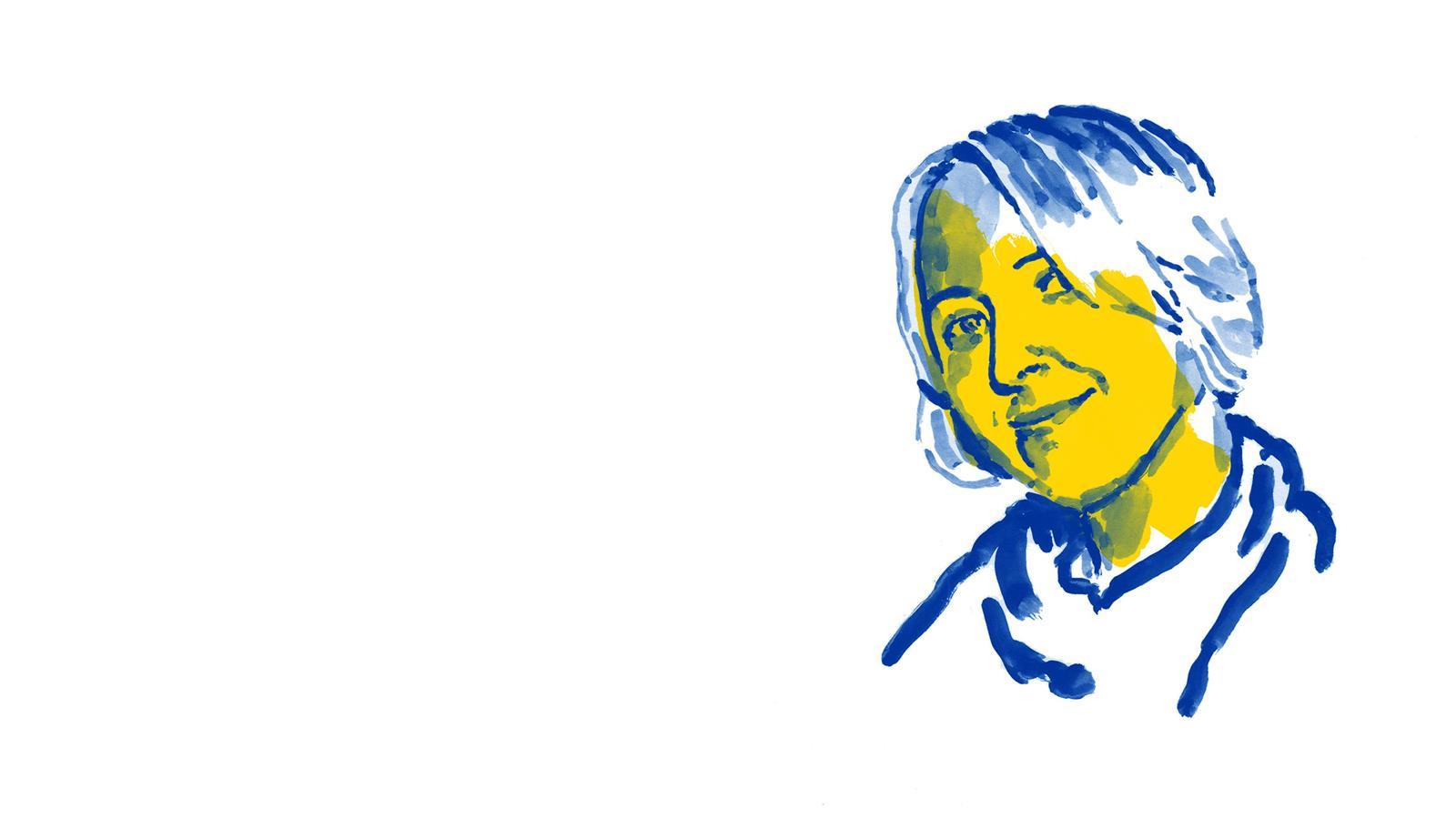


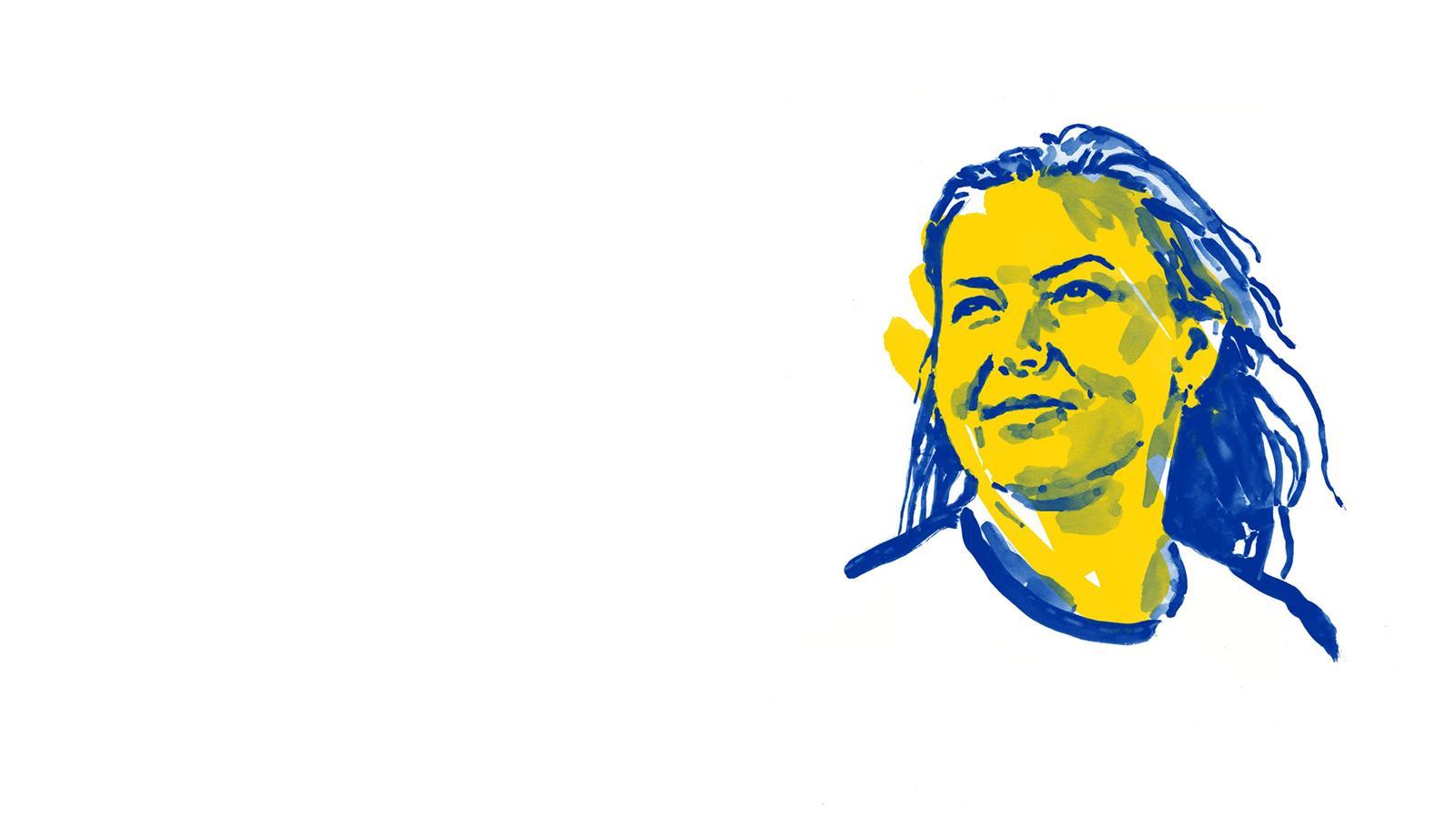


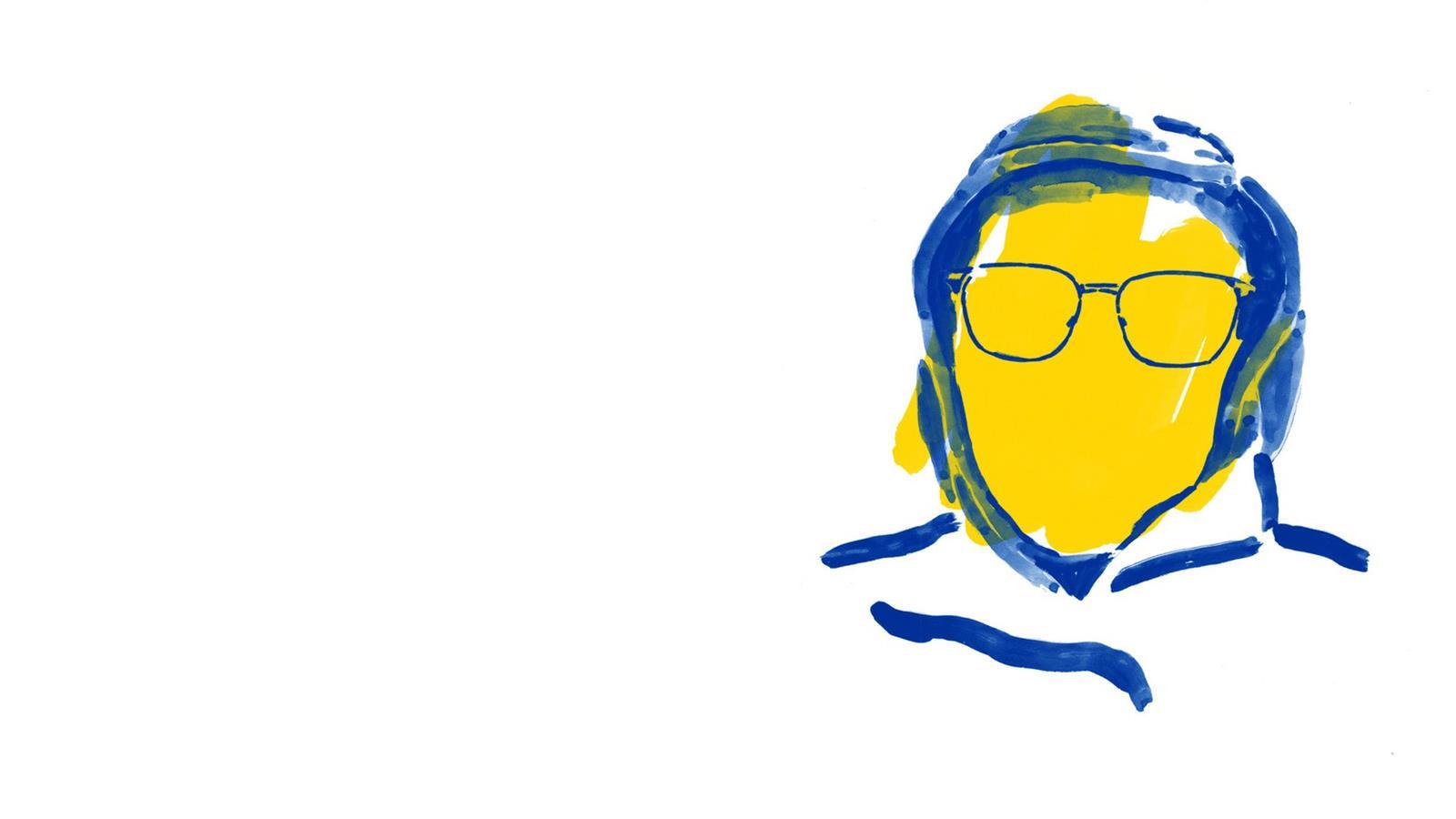



Olha Konshyna is currently on maternity leave from her job as a chemical technologist, and is based in Kyiv
‘I had a dream job, a dream house, I achieved what I wanted in life and then boom! Everything so suddenly goes wrong.’
‘I don’t know how one can help Ukraine other than by sending weapons right now. It’s hard to see how it is possible to work while the war continues. But we will be trying.’
Viktoriia Moskvina is a senior research fellow at Taras Schevchenko Kyiv National University
‘Every day starts with a roll call of colleagues, students, PhD students. Some students write, “please, talk to us; we are too worried about our relatives.”
‘Unfortunately way too many Russians, even when not publicly supporting the war, think we can continue business as usual, as if their military weren’t destroying Ukrainian cities.’
A chemistry research fellow (name withheld) has joined a territorial defence unit
‘For the first two weeks, I was busy carrying sandbags to form fortifications. Gradually it turned into something more like a military unit; now we have contracts, we are part of the staff.’
‘We need military support: weapons, ammunition, even uniforms.’
‘For chemists, for scientists in general, the best help would be Ukraine’s victory in this war.’
Things are deteriorating just over the course of my writing this piece. Every day that the Russian invasion continues costs Ukraine its infrastructure and, more importantly, our people. The situation in the chemical industry was already dreary before the invasion; many Ukrainian chemists had already left the profession for more lucrative jobs in different areas. Now there is a risk it could be entirely obliterated. I hope that soon we will be able to rebuild but also make it better than it was. It will not be easy and will require transformations on multiple levels, including profound institutional changes. Still, I am sure there are enough people keen to help with those, including the Ukrainians who got their education and professional experience outside of the country.
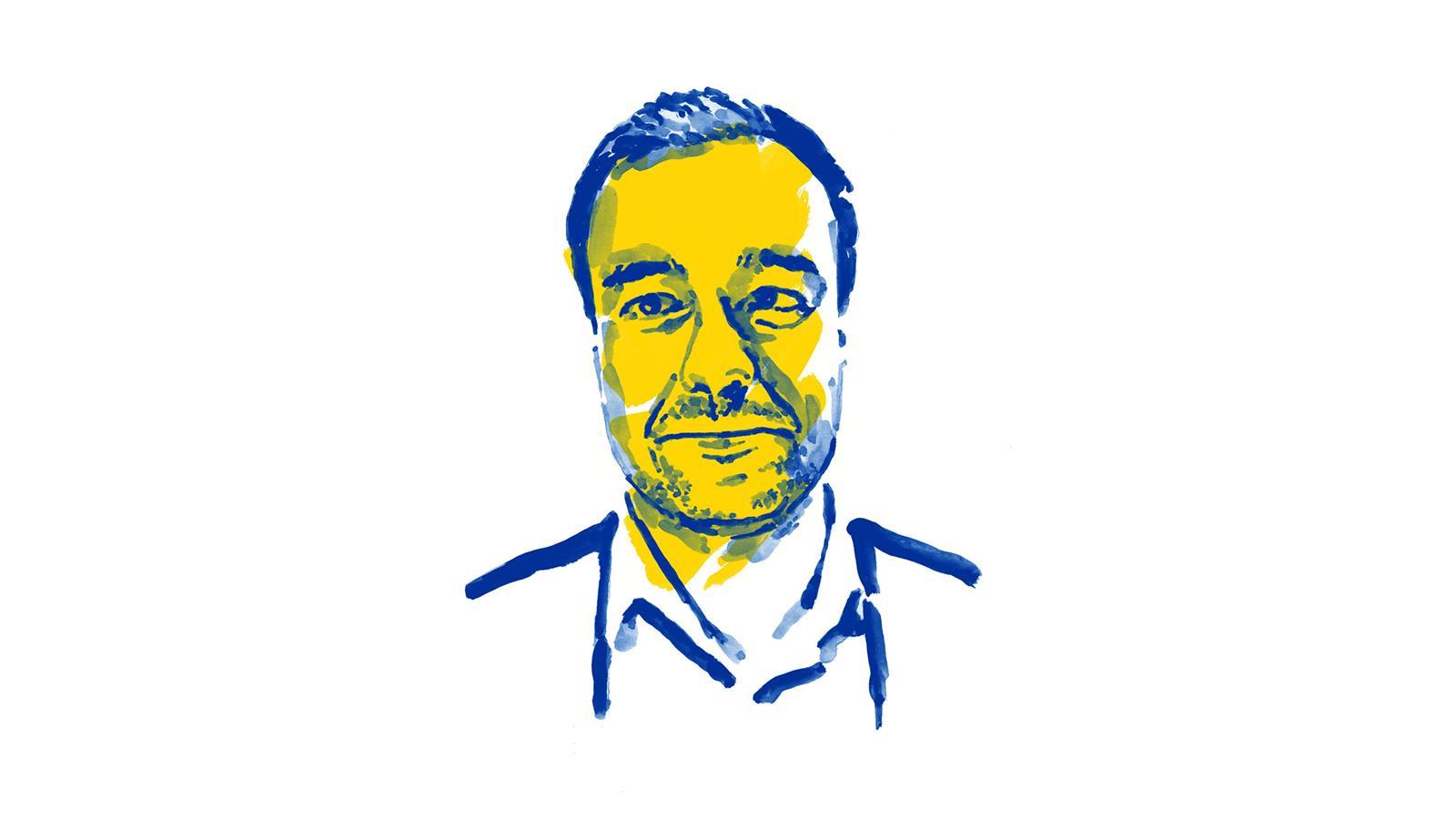


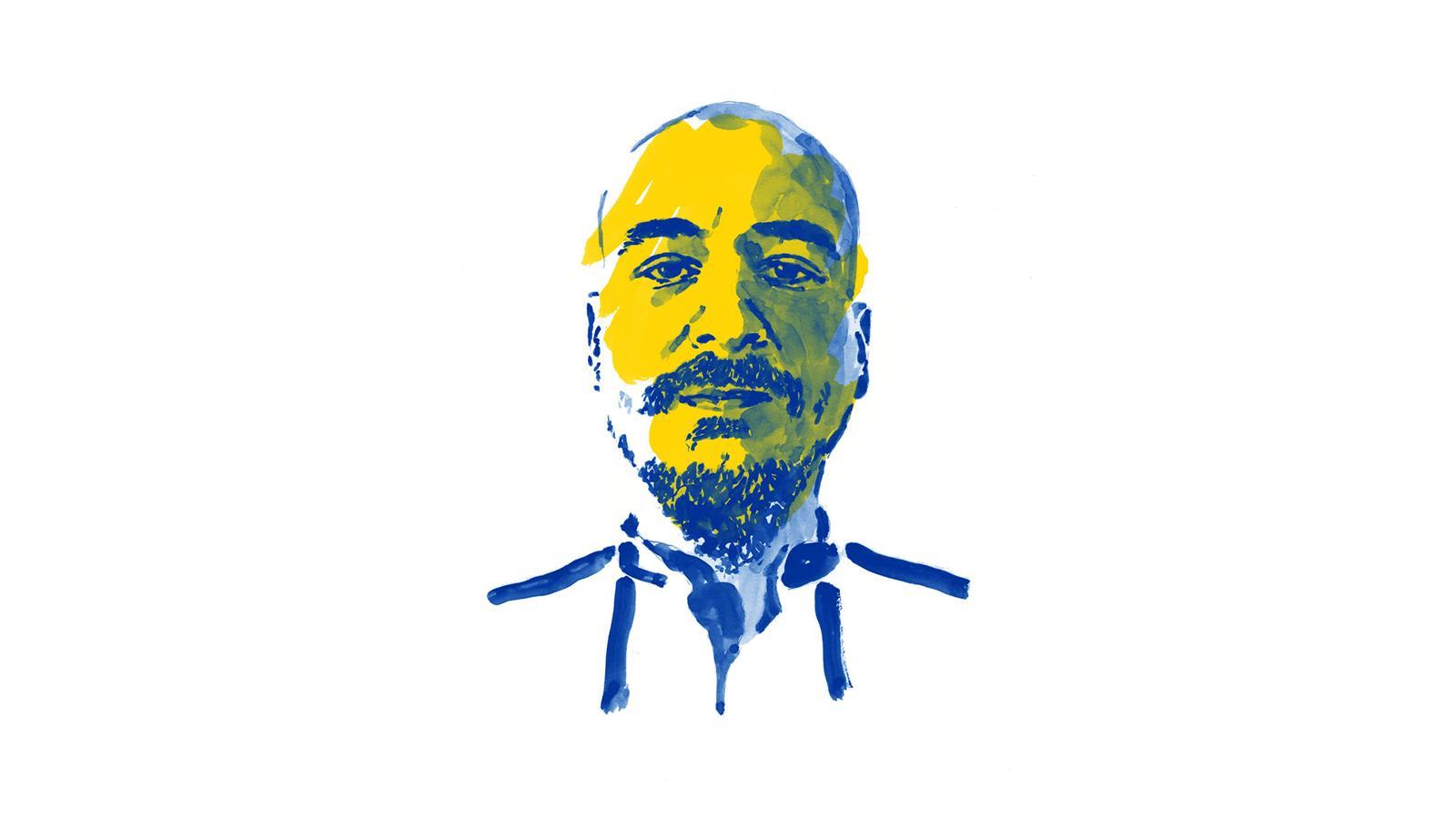


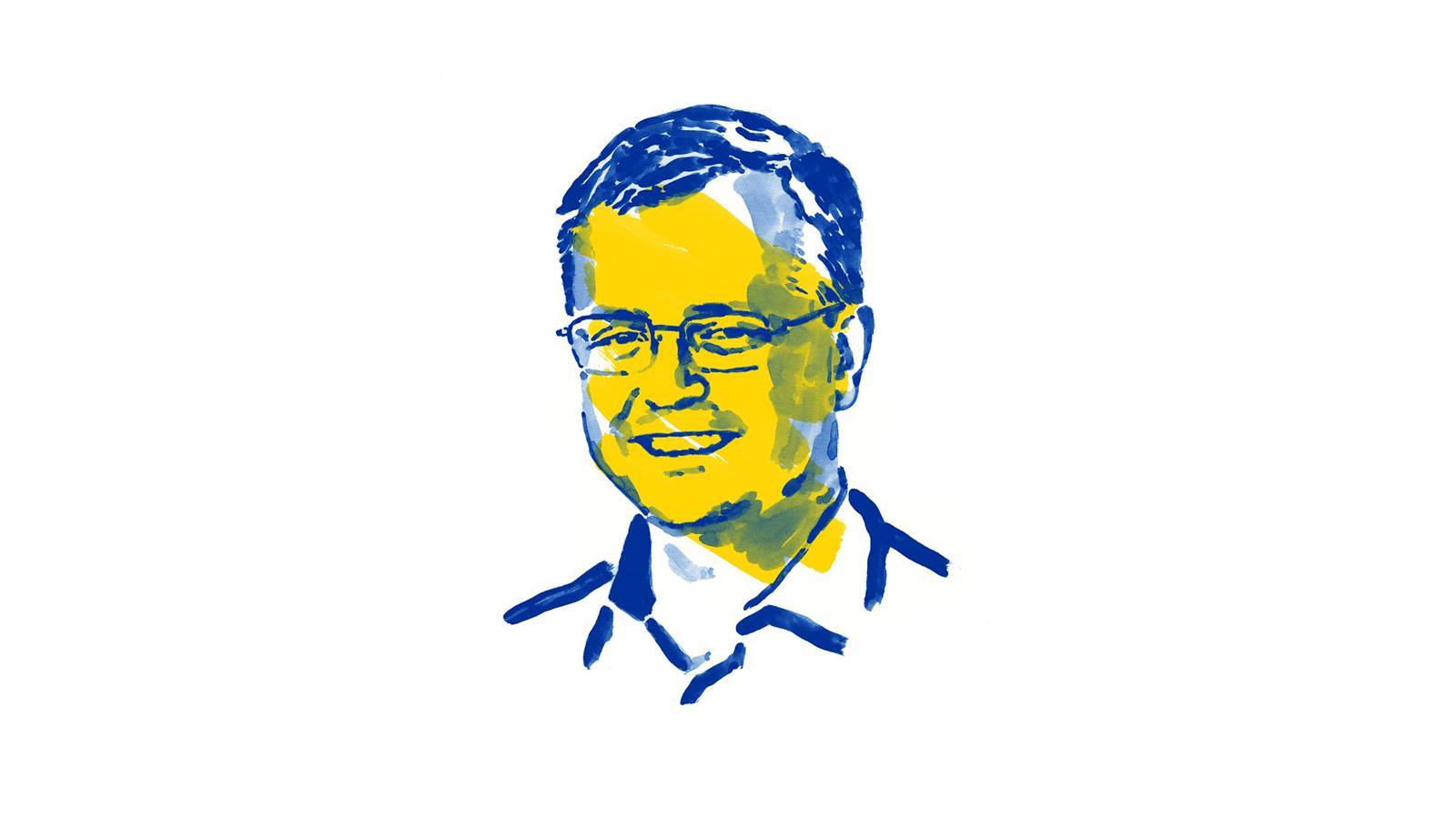



Ilias Shcherbakov is an academic secretary for the Institute for Single Crystals in Kharkiv
‘Our chemical reagents plant has been damaged by the shockwave as the nearby campus of Kharkiv National University was hit hard by an airstrike. All the windows were blown up. Electricity was cut off. We fixed what we could.’
‘The Kharkiv Institute of Physics and Technology was hit much harder. They’ll have to physically rebuild their buildings.’
Volodymyr Buryanov is the lab head at Enamine, based in Kyiv
‘As soon as the Russian troops were repelled from the outskirts of Kyiv I, along with many my colleagues, decided to resume our work. I know that every synthesis I make helps the country to stand against Russian aggression.’
‘It’s important to keep collaborating with Ukrainian institutions as this will allow us to work in Ukraine. I don’t want to be a part of the brain drain.’
Serhii Radio is head of the department for research at Vasyl’ Stus Donetsk National University in Vinnytsia
‘Our students and colleagues were mobilised to the Ukrainian army, and tragic events happen.’
‘Our student from the faculty of economics was killed, and the dean of the biology faculty died of a heart attack in Mariupol. This is very painful.’
‘In a way, we all died in Bucha.’
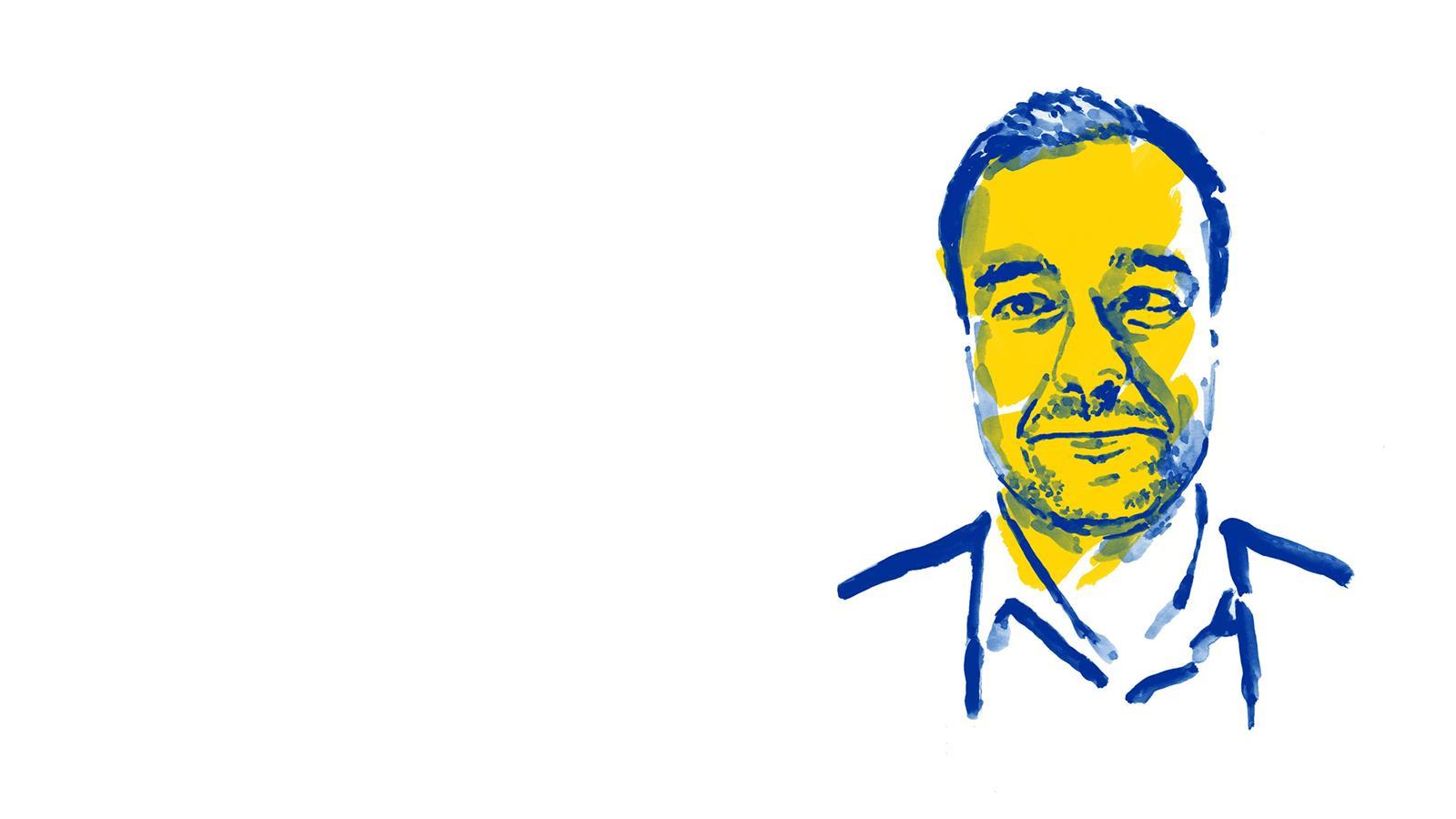


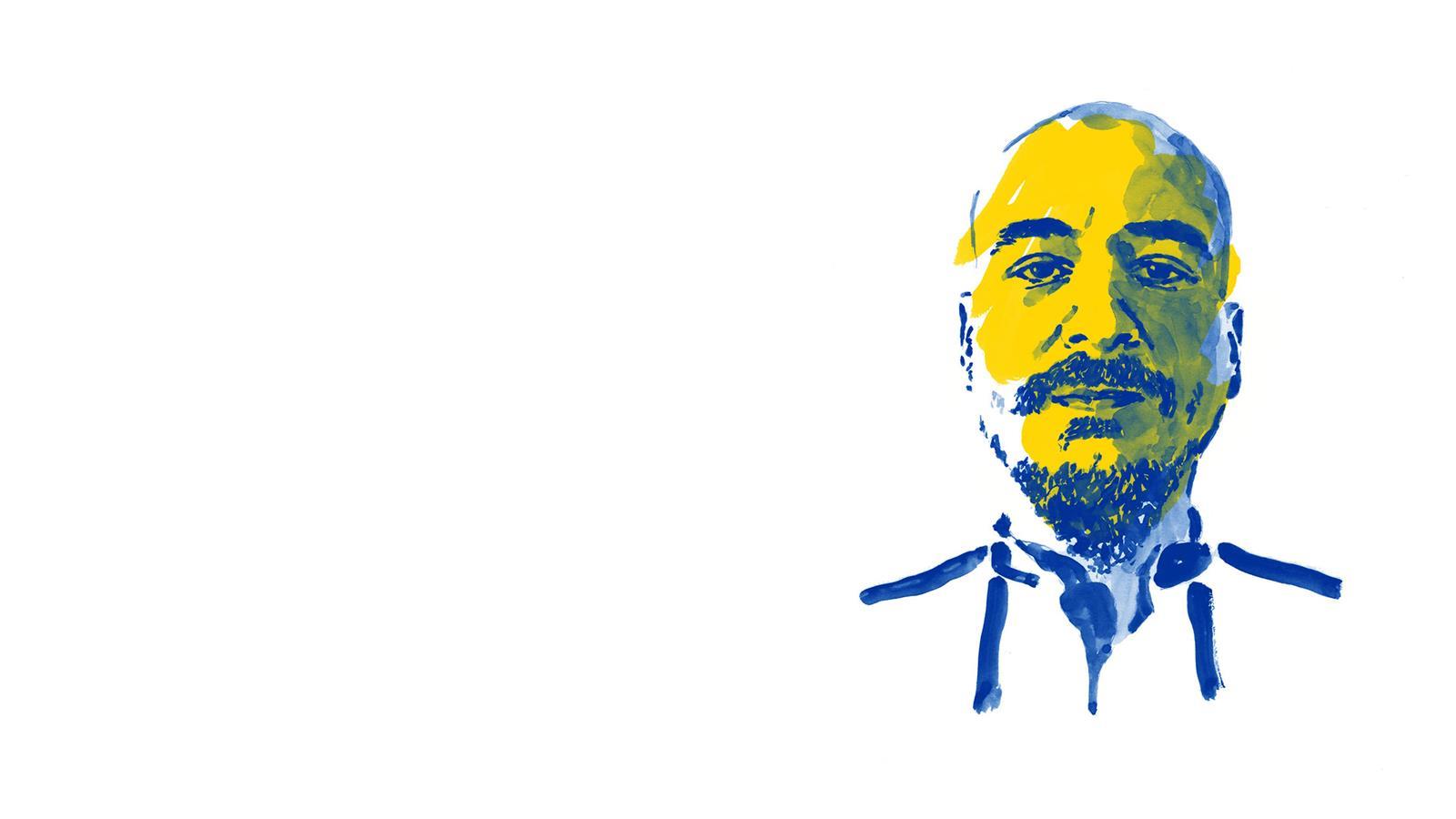


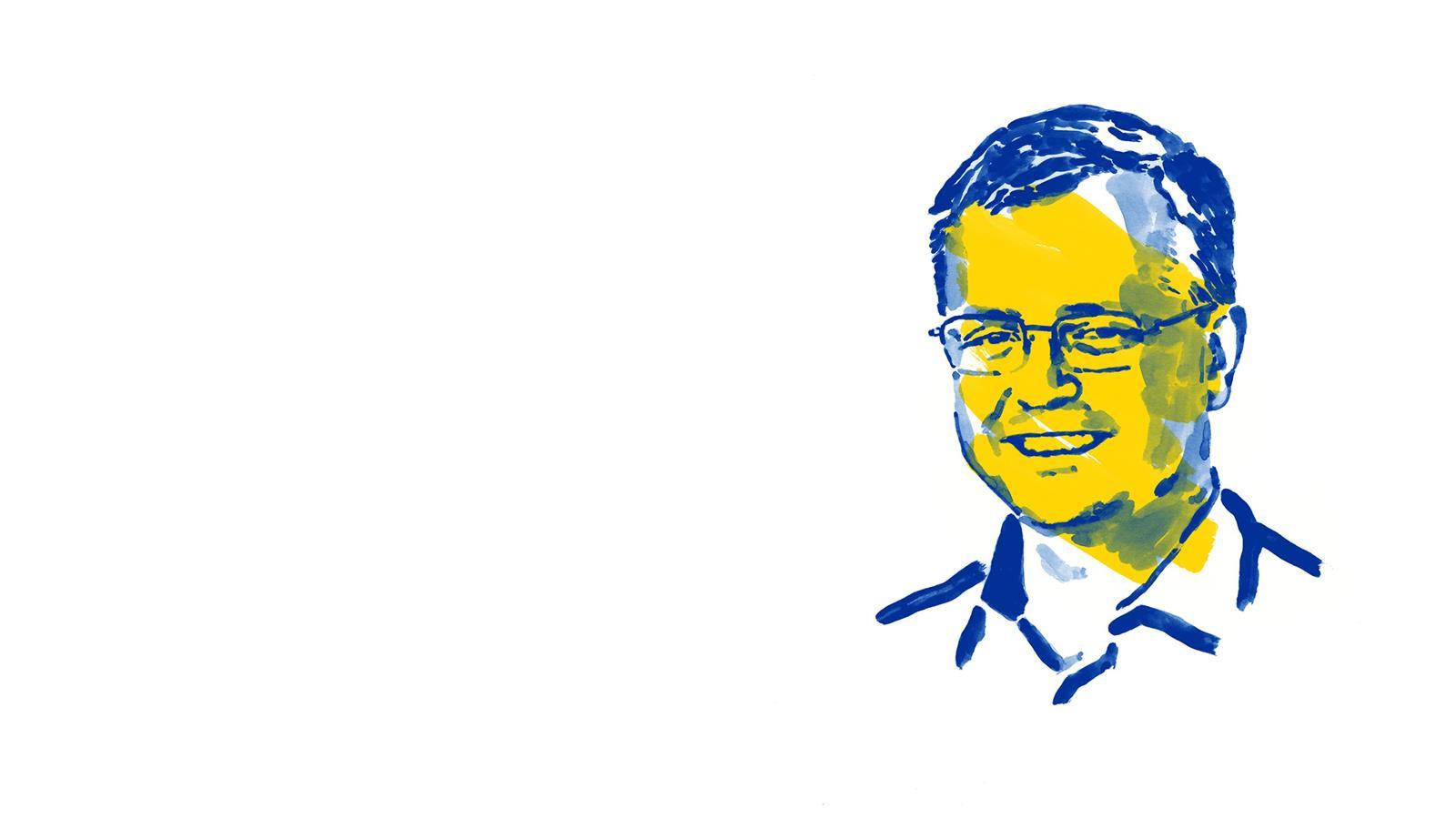



Ilias Shcherbakov is an academic secretary for the Institute for Single Crystals in Kharkiv
‘Our chemical reagents plant has been damaged by the shockwave as the nearby campus of Kharkiv National University was hit hard by an airstrike. All the windows were blown up. Electricity was cut off. We fixed what we could.’
‘The Kharkiv Institute of Physics and Technology was hit much harder. They’ll have to physically rebuild their buildings.’
Volodymyr Buryanov is the lab head at Enamine, based in Kyiv
‘As soon as the Russian troops were repelled from the outskirts of Kyiv I, along with many my colleagues, decided to resume our work. I know that every synthesis I make helps the country to stand against Russian aggression.’
‘It’s important to keep collaborating with Ukrainian institutions as this will allow us to work in Ukraine. I don’t want to be a part of the brain drain.’
Serhii Radio is head of the department for research at Vasyl’ Stus Donetsk National University in Vinnytsia
‘Our students and colleagues were mobilised to the Ukrainian army, and tragic events happen.’
‘Our student from the faculty of economics was killed, and the dean of the biology faculty died of a heart attack in Mariupol. This is very painful.’
‘In a way, we all died in Bucha.’
I am incredibly grateful for the assistance given so far, and I hope that this spirit of international support and collaboration continues until Russia withdraws all its troops from our land, and also in peacetime afterwards.
These days I’m the most homesick I ever was in my over 10 years of living abroad. However, among the horrific pictures of the pain and destruction Russia brought to our land, I notice signs of hope. Under each photo of a destroyed infrastructure object or house, you will find several comments saying that we will rebuild as long as we are alive. Given the opportunity, I would happily return to Ukraine, to help with whatever I can. I’m sure I’m not the only one feeling this way.
But first, we need victory.
Supporting Ukrainian science
→ Find out more about Research4Life access for Ukraine
In partnership with the WHO, FAO, UNEP and WIPO the Royal Society of Chemsitry is proud to immediately grant Research4Life access to our journals content to the Ukrainian scientific community. Registration is free and allows both on- and off-campus access.
→ Find out more about the Chemists’ Community Fund
Impartial guidance. Helpful connections. Support you can count on. The RSC’s Chemists’ Community Fund provides access to advice, information and financial assistance for you and your family in difficult situations.
Confidential Chemists’ Community Fund support can be accessed by RSC members, their partners and dependants.
- Financial and emotional support available but at present RSC membership is needed.
- Listening line available 8am – 8pm Mon to Fri UK times. 0800 084 3451 (UK Freephone) or +44 1223 853549 (International). rsc.org/membership-and-community/chemists-community-fund/wellbeing-and-family/wellbeing-and-listening-service/
- If required, support staff will call someone back if they are calling internationally.
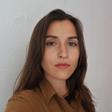
Living through the war in Ukraine
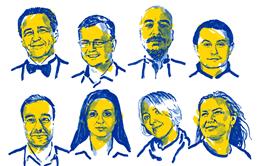
Since the full-scale invasion began, Anastasia Klimash has been talking to chemists in Ukraine to find out how they are being affected
 Currently
reading
Currently
reading
Chemistry needs peace
- 2
- 3
- 4
- 5
- 6
- 7
- 8
- 9
- 10
- 11












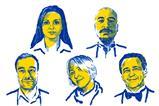











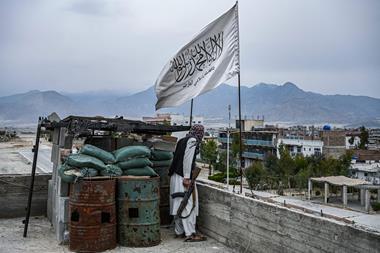
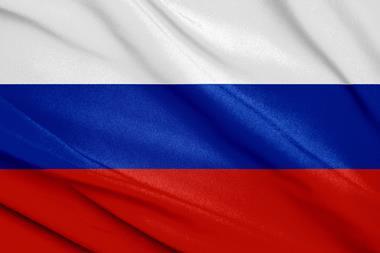
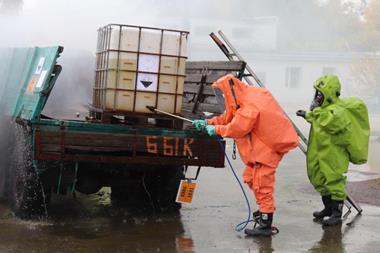








No comments yet